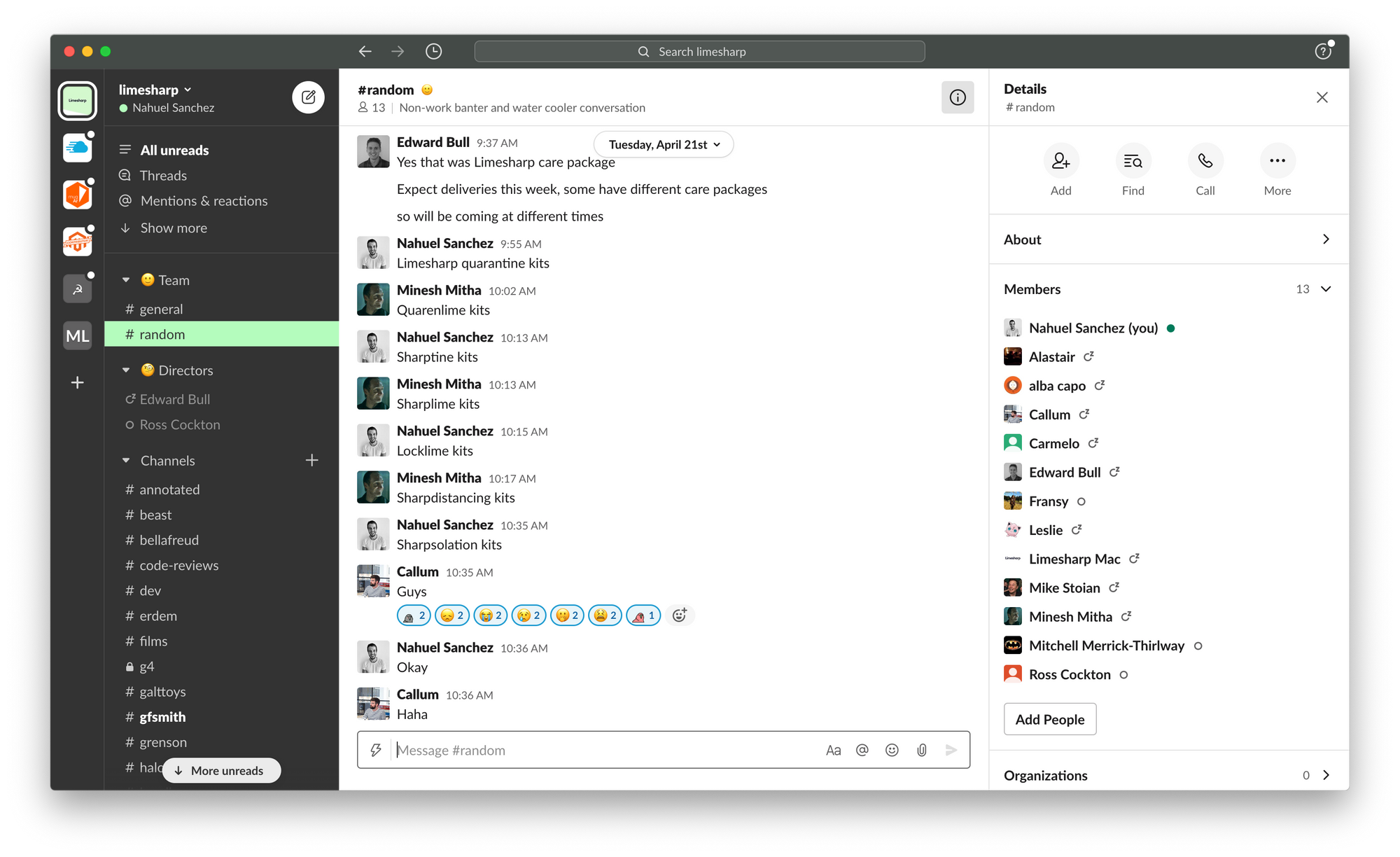You should already know that having a remote team and moving away, at some capacity, from having an office and mandating everybody to attend it in favour of working from home, have plenty of advantages... but it also requires companies to re-think their culture and adapt it for including remote members.
This is something to be face for either companies having all of their employees remote (no office whatsoever) or for those companies with a mix.
Since we are in the middle of a pandemic (#covid19), this work from home thing stopped from being optional for some companies and everybody was forced into it.
Nevertheless, I personally think that work from home, or at least a flexible scheme that combines office time and home time, is the new way to go, so preparing for that reality can't be pushed forward.
Working for home has a lot of benefits for both the employees and the employers, but it's not about only having Wi-Fi at home.

People not used to work from home will struggle with their new situation, specially because separating work from life is not easy when both happens in the same physical environment. Anyway, that's a different problem.
But what companies can do is to work on a culture to makes every remote team member welcome.
You want to have a great team culture because you want people to stay with you, and you want those who stay to like showing up to do the work, which will result in better stuff being done, in progress being made.
Do not think for a second that a classic culture, rules, or way to go for when you were on an office will accommodate everybody now working in pajamas. That process of yours needs to be dust off and made again.
Bake a culture that brings down the feeling of being away
This should be the main objective of your new culture: the idea of making everybody as welcome as possible, part of something, a team, removing the sensation of just having people logging time and solving tickets with an interaction boiled down to only asking questions after a technical brief.
That's not a team member, that's a contractor or freelance you got there. Which is fine, if that's what you are after, but the approach in this post is to adapt your previous "going to the office" to "walking from bed to desk".
The culture needs to integrate people by bringing down the barriers imposed by everything being digital and virtual now.
There are a lot of thing we are no even aware we are missing by not being in the same place, like, for example, there's no more "I'm making coffee, anybody wants some?". There's an element of... human touch?... we need to re-incorporate.
Videos are now part of your meetings
There's an incredible change on people's behaviour when having a call with and without the camera turned ON.
When you are talking to somebody and you can see them, and you also know you can be seen, you are both in presence of a more honest conversation taking place. Your call becomes more real because the camera forces everybody to have accountability on what's being said.
For example, it's not the same to provide an estimation or deadline for a task by saying it "face to face" than by only using the microphone. The camera is a constant reminder that you are talking to an human being, and that what you say and how you say it matter.
This is particularly important when the meeting is about something else than actual classic work tasks, like on performance reviews.
Fun is allowed and encouraged
Cameras turned ON during a call also relaxes the conversation, and helps to emulate what happens on a meeting taking place in real physical conference rooms.
Nobody walks into a meeting, on a physical room, and sits down straight to business. There's some water cooler moments before and after work actually happens, and that's okay, that should be somehow, at some level, encouraged.
The same should be allowed to happen on any other conversation tool you have, specially on the one you are using to chat, a.k.a. Slack.

Don't expect people to be robots, to talk either verbally or in writing as if their were always wearing a suit and saying something to the President of the United States.
On a real office there's music sometimes, chit-chat happening on a corner, or jokes appearing during shop talk, but on Slacks that's down to memes, gifs, and emojis, which bring something else for the entire team, easing the working day and removing pressure. A small venting crack perhaps, on complicated days.
Non-work related meetings are now essential
Having fun is a way of team building, and there's plenty of activities that a company can promote to achieve this (besides just using emojis on Slack).
I know it was typical for assembled office teams to get pizza on a Friday, going for some after office time at a pub, and came up with team activities. Now, you just need to think of stuff that can be done remotely.
Team building becomes now more important than ever, as "having a team" doesn't happen as easy as maybe before.
Again, in these particular times were people are in a lockdown due to the Coronavirus, a meeting to just laugh is more than welcome, specially on companies suddenly forced to be remote with no employee ready for it.
For example, the company I work for promoted a few Fridays for games over Zoom where we separated into two teams and played charades... while wearing costumes, fancy dresses, and props.
Meet to improve the remote work
Of course, having a remote team doesn't mean nobody meets each other in person ever again. On the contrary, if you have the possibility to assemble the entire team on a physical space every now and then, great, take it.
For remote employees, meeting each other in person, or meeting the "team from the office", has a real impact on how they perceive the company and what they think of it.
You will witness a change on how people communicate online after a meet up takes place, because people will have had a chance to know other people voices, tone, and expressions.
Sending people stuff will also do the work, and I'm talking delivery packages with beer or whatever gift you can think of. Employees must be rewarded, specially those hard workers that were key on a specific date or task.
Ask what people need
Finally, at the end, and as usual, everything is down to just asking what people need or want. But as obvious as this seems to be, it happens to be the thing we do the lesser.
Take time to ask and listen. Sit down and have a conversation with your remote employees to understand what they need and what their feelings are towards working remote.
Again, specially for those companies that hadn't other option but to make everybody work from home.
If budget is not a problem, help employees to set up their working environment at home, where the priority is the chair.
Buy them a comfy chair... that's what I was trying to say all this time.





